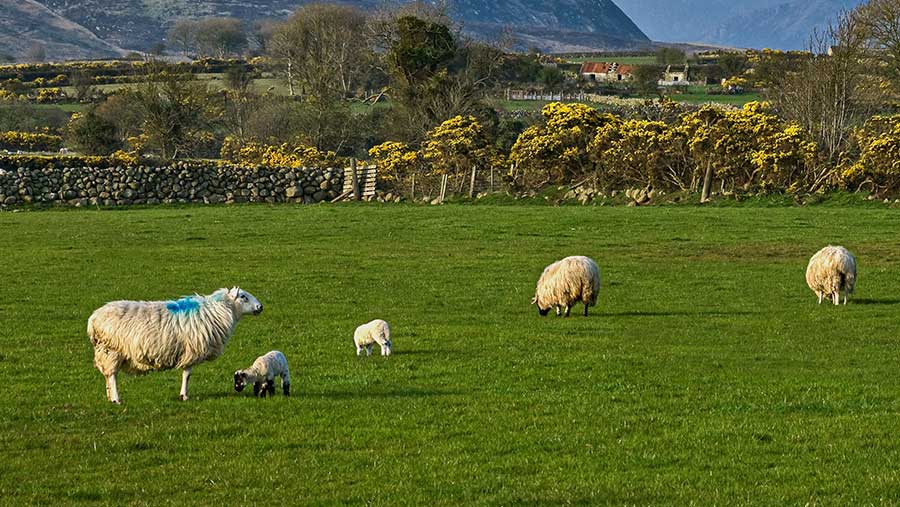NI protocol talks face tough EU stance – fears for breeding stock movements
 © Jane McIlroy/Adobe Stock
© Jane McIlroy/Adobe Stock Hopes of a practical resolution to post-Brexit blocks on breeding animal movements between Northern Ireland and Great Britain have been dealt a blow.
Since Brexit, trade between them has come under separate arrangements known as the Northern Ireland Protocol. The protocol is in place to protect the EU’s only land border with the UK, which must now adhere to third country rules.
The rules include extra measures to prevent the spread of animal and plant diseases and these have effectively blocked trade in breeding livestock (see panel).
See also: Guide to funding for tree projects on farm
Earlier this week, vets and livestock bodies welcomed an attempt by Brexit negotiator Lord Frost to open up talks on the protocol to resolve issues.
But a command paper by Lord Frost, which proposed a dual regulatory regime as a way forward, has now been firmly rebutted by EU MPs.
Heads of the EU negotiation team David McAllister and Bernd Lange expressed an “unwavering commitment to the full implementation of the protocol”.
In a statement the EU team said the protocol represented the only solution to address the unique situation and challenges on the island of Ireland.
It turned the blame for the situation on the UK’s decision to leave the EU’s Single Market and Customs Union.
The tough stance will come as a blow to the National Sheep Association (NSA), which had urged Lord Frost to press for a rapid solution for breeding animals earlier this week.
NSA chief executive Phil Stocker said autumn breeding sales were on the horizon, which meant regulations had to be changed quickly.
Six-month residency, retagging and scrapie-monitoring rules make no sense and are have financial and genetic implications on pedigree and commercial flocks, Mr Stocker said.
British Veterinary Association (BVA) president James Russell also welcomed efforts by the government to address issues, but added a caveat on ensuring any solution continued to provide assurance throughout the whole system.
Why have breeding stock numbers fallen?
Before the UK left the EU, about 10,000 sheep and 4,000 cattle a year were imported from mainland Britain to Northern Ireland as breeding or finishing stock. In stark contrast just 30 sheep and 480 cattle were imported as stores or for breeding in the first quarter of this year.
Since Brexit the UK’s third country status means live animals shipped across the Irish sea must meet the same requirements as those imported from Brazil.
Issues include show licences, sheep scrapie controls and retagging.
Show licences
Before 1 January 2021, livestock could be licensed to leave NI and travel to GB to attend shows and sales, according to the Ulster Farmers Union.
Unsold animals returned to their original holding and rejoined herds or flocks after a 30-day isolation and testing period. But under the new export health certificate (EHC), there is no option for this.
Sheep scrapie
All sheep entering NI must be accompanied by an EHC, which carries stricter controls. Some of these conditions, regarding scrapie monitoring and genotyping, mean a high proportion of sheep cannot meet the new rules.
Retagging
Policy dictates that animals exported from GB to NI must have their UK tags replaced with a GB tag. UK tags are removed on arrival in NI and replaced with sequential tags from the NI holding on which they are now resident, cutting the traceable origin of the animal.
While this does not prevent trade, there are threats and consequences of losing full-life, provenance and traceability, the UFU warned.
